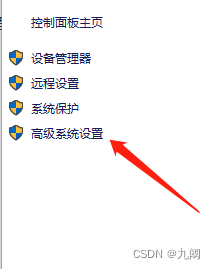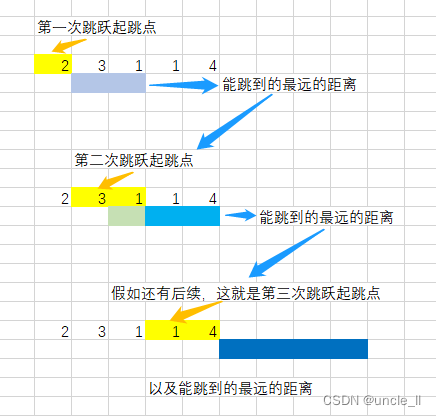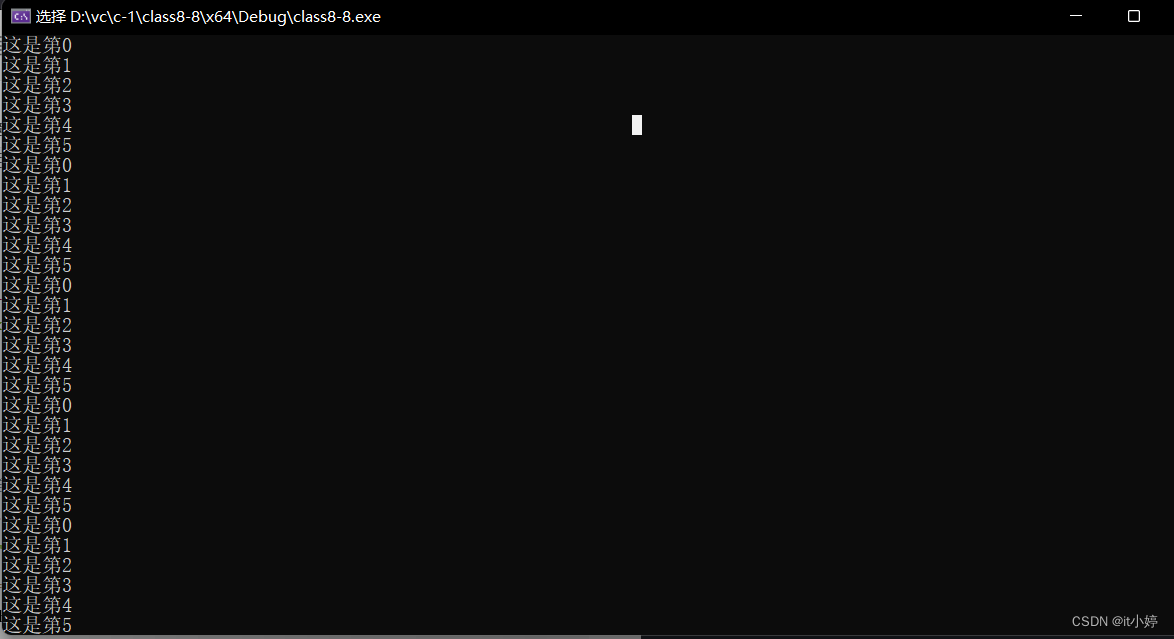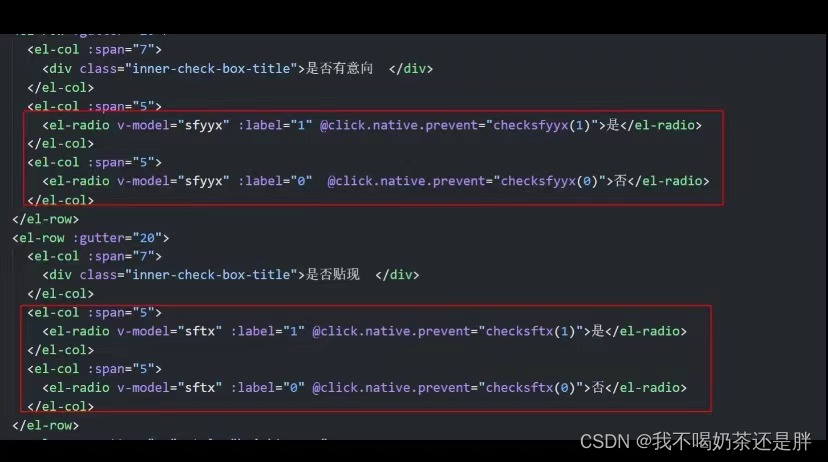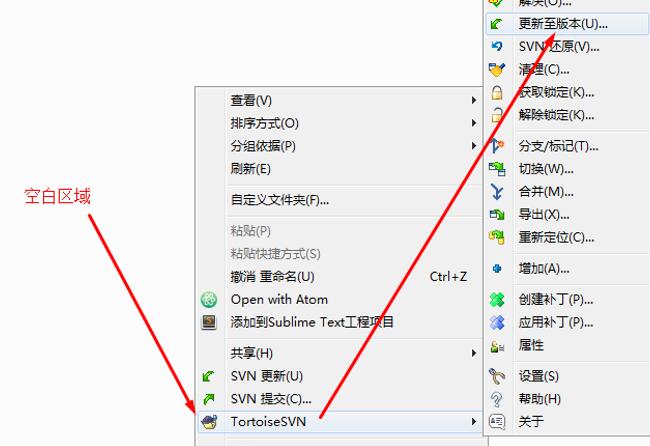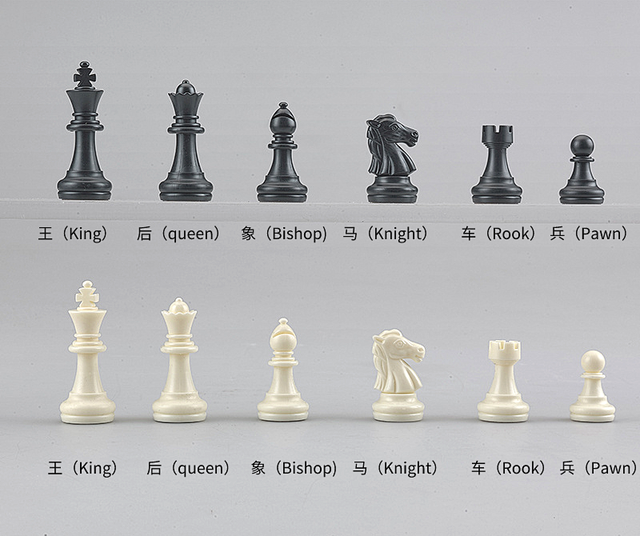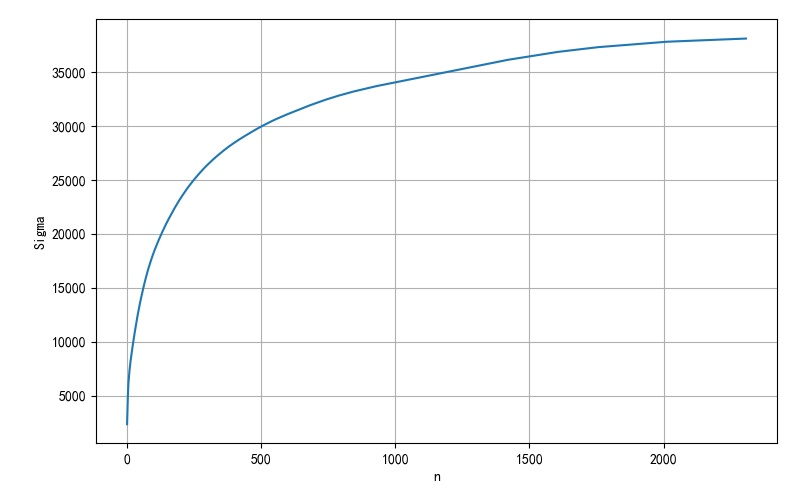当前位置:网站首页>C. Social Distance
C. Social Distance
2022-08-10 20:44:00 【秦小咩】
C. Social Distance
time limit per test
2 seconds
memory limit per test
256 megabytes
input
standard input
output
standard output
Polycarp and his friends want to visit a new restaurant. The restaurant has nn tables arranged along a straight line. People are already sitting at some tables. The tables are numbered from 11 to nn in the order from left to right. The state of the restaurant is described by a string of length nn which contains characters "1" (the table is occupied) and "0" (the table is empty).
Restaurant rules prohibit people to sit at a distance of kk or less from each other. That is, if a person sits at the table number ii, then all tables with numbers from i−ki−k to i+ki+k (except for the ii-th) should be free. In other words, the absolute difference of the numbers of any two occupied tables must be strictly greater than kk.
For example, if n=8n=8 and k=2k=2, then:
- strings "10010001", "10000010", "00000000", "00100000" satisfy the rules of the restaurant;
- strings "10100100", "10011001", "11111111" do not satisfy to the rules of the restaurant, since each of them has a pair of "1" with a distance less than or equal to k=2k=2.
In particular, if the state of the restaurant is described by a string without "1" or a string with one "1", then the requirement of the restaurant is satisfied.
You are given a binary string ss that describes the current state of the restaurant. It is guaranteed that the rules of the restaurant are satisfied for the string ss.
Find the maximum number of free tables that you can occupy so as not to violate the rules of the restaurant. Formally, what is the maximum number of "0" that can be replaced by "1" such that the requirement will still be satisfied?
For example, if n=6n=6, k=1k=1, s=s= "100010", then the answer to the problem will be 11, since only the table at position 33 can be occupied such that the rules are still satisfied.
Input
The first line contains a single integer tt (1≤t≤1041≤t≤104) — the number of test cases in the test. Then tt test cases follow.
Each test case starts with a line containing two integers nn and kk (1≤k≤n≤2⋅1051≤k≤n≤2⋅105) — the number of tables in the restaurant and the minimum allowed distance between two people.
The second line of each test case contains a binary string ss of length nn consisting of "0" and "1" — a description of the free and occupied tables in the restaurant. The given string satisfy to the rules of the restaurant — the difference between indices of any two "1" is more than kk.
The sum of nn for all test cases in one test does not exceed 2⋅1052⋅105.
Output
For each test case output one integer — the number of tables that you can occupy so as not to violate the rules of the restaurant. If additional tables cannot be taken, then, obviously, you need to output 00.
Example
input
Copy
6 6 1 100010 6 2 000000 5 1 10101 3 1 001 2 2 00 1 1 0
output
Copy
1 2 0 1 1 1
Note
The first test case is explained in the statement.
In the second test case, the answer is 22, since you can choose the first and the sixth table.
In the third test case, you cannot take any free table without violating the rules of the restaurant.
=========================================================================
贪心,从前往后遍历即可,能加就加,加的条件是左右k距离没有1
判断区间内是否有1的方法是前缀和,但本题是动态修改的,也就是当前位置前面是否有1是需要根据之前修改情况也判断的,当然,右边是否有1是完全可以利用前缀和来判断的,至于前面的,我们设置一个pre变量即可,每当遇见1就修改,值得注意的是,我们新添进去的1也不能忘记修改pre
#include<iostream>
#include<cstdio>
#include<cstring>
# include<iomanip>
#include<algorithm>
#define mo 998244353;
using namespace std;
typedef long long int ll;
int sum[200000+10];
int main()
{
int t;
cin>>t;
while(t--)
{
string s;
int n,k;
cin>>n>>k;
cin>>s;
s=" "+s;
for(int i=1;i<=n;i++)
{
sum[i]=sum[i-1]+s[i]=='1';
}
int pre=-1e9;
int ans=0;
for(int i=1;i<=n;i++)
{
if(s[i]=='1')
{
pre=i;
}
else if(s[i]=='0')
{
if(pre+k<i&&sum[min(n,i+k)]-sum[i]==0)
{
ans++;
pre=i;
}
}
}
cout<<ans<<endl;
}
return 0;
}边栏推荐
- Future-oriented IT infrastructure management architecture - Unified IaaS
- Redis命令手册
- Kerberos认证
- 【语义分割】2017-PSPNet CVPR
- win7开机有画面进系统黑屏怎么办
- Heme - gold nanoparticles (Heme - AuNP) composite nanometer enzyme | gold nanoparticles nuclear porous hollow carbon nanometer spherical shell (Au @ HCNs) nano enzyme
- 知识图谱Knowledge Graph
- sklearn 笔记 TSNE
- 导入FontForge生成字体
- 电信保温杯笔记——《统计学习方法(第二版)——李航》第17章 潜在语义分析
猜你喜欢
随机推荐
MySQL查询数据库中的表和字段
Kerberos认证
ansible各个模块的详解和使用
Water-soluble alloy quantum dot nanozymes|CuMoS nanozymes|porous silicon-based Pt(Au) nanozymes|[email protected] nanomimetic e
每日一R「03」Borrow 语义与引用
win10 xbox录屏功能不能录声音怎么办
工程师应该怎么学习
【go】依赖注入
Web3中值得关注的基础设施
大小端的理解以及宏定义实现的理解
Echart饼状图标注遮盖解决方案汇总
C语言写数据库
paddle 35 paddledetection保存训练过程中的log信息
Oracle 的开窗函数使用详解(二)
idea插件 协议 。。 公司申请软件用
【vulhub】MySql身份认证绕过漏洞复现(CVE-2012-2122)
2019河北省大学生程序设计竞赛部分题题解
Knowledge map Knowledge Graph
ES6中的for...in/of的使用
“蔚来杯“2022牛客暑期多校训练营7 F
